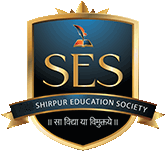Vision :
To achieve excellence in Mechanical engineering education with strong ethical values for serving the stakeholders.
Mission :
- To provide state-of-the-art facilities to Achieve Excellence in Education.
- To take up various value-added courses to enhance Placement Potential.
- To use a creative teaching learning process to develop Research Aptitude.
- To instil Ethics, High moral values, and a lifelong learning mindset.
Program Educational Objectives (PEOs)
- PEO 1 To develop an ability among graduates for applying knowledge of mechanical engineering with a multi-disciplinary approach.
- PEO 2 To prepare graduates having entrepreneurial skills, research attributes and motivation for higher studies and lifelong learning.
- PEO 3 To inculcate ethical and social values in students to become a socially responsible human being.
PROGRAM OUTCOMES:
Engineering Graduates will be able to:
- PO1. Engineering knowledge: Apply the knowledge of mathematics, science, engineering fundamentals, and an engineering specialisation to the solution of complex engineering problems.
- PO2. Problem analysis: Identify, formulate, review research literature, and analyse complex engineering problems reaching substantiated conclusions using first principles of mathematics, natural sciences and engineering sciences.
- PO3. Design/development of solutions: Design solutions for complex engineering problems and design system components or processes that meet the specified needs with appropriate consideration for the public health and safety, and the cultural, societal, and environmental considerations.
- PO4. Conduct investigations of complex problems: Use research-based knowledge and research methods including design of experiments, analysis and interpretation of data, and synthesis of the information to provide valid conclusions for complex problems:
- PO5. Modern tool usage: Create, select, and apply appropriate techniques, resources, and modern engineering and IT tools including prediction and modelling to complex engineering activities with an understanding of the limitations.
- PO6. The engineer and society: Apply reasoning informed by the contextual knowledge to assess societal, health, safety, legal and cultural issues and the consequent responsibilities relevant to the professional engineering practice.
- PO7. Environment and sustainability: Understand the impact of the professional engineering solutions in societal and environmental contexts, and demonstrate the knowledge of, and need for sustainable development.
- PO8. Ethics: Apply ethical principles and commit to professional ethics and responsibilities and norms of the engineering practice.
- PO9. Individual and team work: Function effectively as an individual, and as a member or leader in diverse teams, and in multidisciplinary settings.
- PO10. Communication: Communicate effectively on complex engineering activities with the engineering community and with society at large, such as, being able to comprehend and write effective reports and design documentation, make effective presentations, and give and receive clear instructions.
- PO11. Project management and finance: Demonstrate knowledge and understanding of the engineering and management principles and apply these to one’s own work, as a member and leader in a team, to manage projects and in multidisciplinary environments.
- PO12. Life-long learning: Recognize the need for, and have the preparation and ability to engage in independent and lifelong learning in the broadest context of technological change.
Program Specific Outcomes (PSOs)
- PSO 1 Students are able to apply fundamental concepts of mechanical engineering to design, analyse, manufacture and testing of mechanical components and systems.
- PSO-2 -Students are able to solve community problems with the help of knowledge of mechanical engineering, computational software, and programming skills to improve their placement potential.
